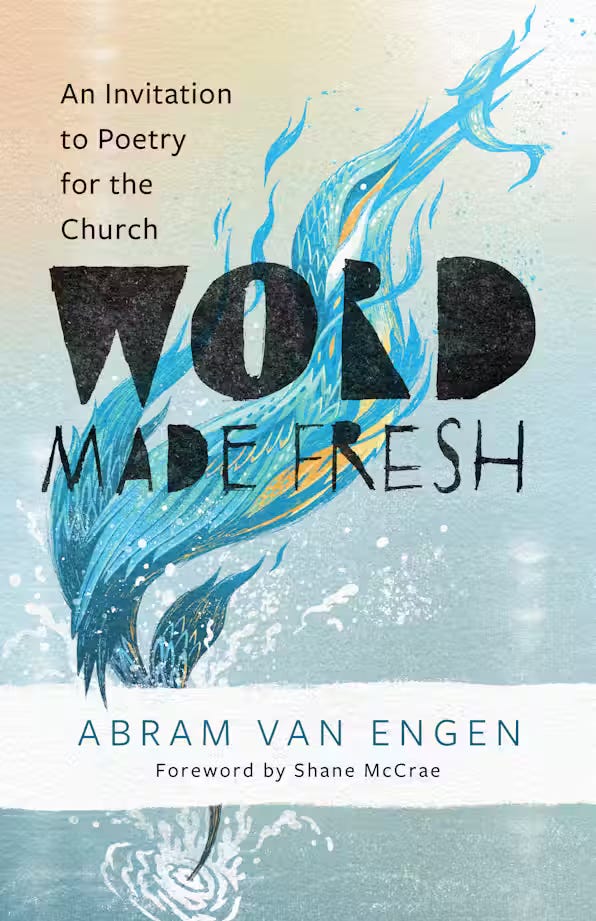“We are happy, free, confused, and lonely at the same time.”
I am not, perhaps, your typical Swiftie. An over-educated, uncool, 40-something English professor, my ideal evening involves a cup of tea and a tome of old literature that no one else ever reads. But I love Taylor Swift. And some of my over-education may help explain why.
In the great song, “All Too Well,” Taylor describes sitting next to a silent lover waiting for him to name what they have together. To call it love. But he never does. “You never called it what it was,” she sings. That line, tucked in the middle of a ten-minute rhyming ballad, identifies for me what makes Swift who she is: in the way of any good poet, she calls things what they are.
“To name is to know and remember,” writes the poet Dana Gioia. It is one of the great gifts and powers of poetry—a gift Taylor Swift possesses as well. She names. She knows and remembers. Sometimes she remembers all too well. Song by song, she identifies with surprising and accessible lines certain experiences and emotions that resonate for millions. It’s not just the music; it’s the poetry I want to note.
The Proto-Poet
In a podcast I co-host, called Poetry For All, we dwell on the power of poetry to name with precision the world in which we live. And in a forthcoming book called Word Made Fresh, I link that power to Genesis.
Genesis 1 and 2 may not be the first thing that springs to mind when you talk about Taylor Swift, but go with me for a moment. Consider that story of creation. The writer imagines a God who makes a cosmos out of language, and who then, surprisingly, loans that language to us. In the very first act after creation, God brings everything to Adam “to see what he would call them. And whatever the man called each living creature, that was its name.”
It’s a strange moment in a strange story. The God of Genesis longs to see what this breath of mud, this human being, will do. And his first task is to name the world.
For ages now, poets have turned to this story to explain themselves (whatever they think of the Bible itself). W. H. Auden, one of the greatest writers of the twentieth century, described Adam as the world’s first poet, “the Proto-poet,” the person tasked with proper names. As Auden explains, “A Proper Name must not only refer, it must refer aptly and this aptness must be publicly recognizable.”
Taylor Swift’s songs take up this task. They spill over with apt names, publicly recognizable. She takes up the art of Adam with a simple poetry that both surprises and identifies.
Naming the Age
Start with that much-quoted shrug of Shake It Off: “Haters gonna hate,” Taylor sings. “Shake it off.” It’s not complicated. It identifies a verb with the verber: players gonna play and haters gonna hate. Yet it’s exactly the kind of simple phrase that names a needed nonchalance where it seems impossible to please. In all kinds of contexts now I see people shake it off with a simple phrase: “haters gonna hate.”
Better yet, consider Swift’s seeming definition of her generation in 22: “We are happy, free, confused, and lonely at the same time.” Those adjectives don’t seem to sit together. Yet they do. According to social media, we are happy all the time. According to marketing, we are free to be and do whatever we want to do and be. Yet in the swarm of choices, confusion ensues. And in the longing looks at others’ pictured bliss, we have stumbled into an epidemic of loneliness. “We are happy, free, confused, and lonely at the same time.”
Taylor Swift names our age many times and in many ways, but perhaps she does so most aptly in a song about social media: You Need to Calm Down.
You are somebody that I don’t know
But you’re taking shots at me like it’s Patrón
And I’m just like “Damn, it’s 7:00 a.m.”
Say it in the street, that’s a knock-out
But you say it in a Tweet, that’s a cop-out
And I’m just like, “Hey, are you okay?”
We know by now that internet anger overflows. In fact, one of the best predictors of heart disease is a county’s quantity of Twitter rage. Taylor names that rage and calls it crazy. It is Twitter-specific fury that would never happen in offline. Like 22, this song recognizes and names a phenomenon with a missive for our social media age: “You need to calm down.”
Taylor Swift Speak Now Tour Hots Sydney, Australia, creative commons
Simple Complexity
For all I admire the way Taylor names the age and makes shareable its experiences, perhaps I am most grateful for how she models owning up. Taylor’s characters are complex. And they apologize. Not always. Not exclusively. She accuses and excuses as well. But several songs take ownership of wrong and hold out hope for forgiveness—a naming that seems both desperately rare and needfully resonant.
In Betty, for example, a lover has royally screwed up. The sorry singing lover knows it, owns it, and hopes to make things right, but has no idea what Betty will do. She’s free to forgive—or not.
You heard the rumors from Inez
You can’t believe a word she says
Most times, but this time, it was true
The worst thing that I ever did was what I did to you
Here and elsewhere, easy rhymes and playful lines surprise us with ownership of wrong: “In my defense, I have none,” she sings. Or: “It’s me, hi, I’m the problem, it’s me.” In the song Illicit Affairs, Swift tracks the lies of a certain kind of love and the moment it explodes in truth.
My favorite lines in Taylor’s music all come from her simple naming of complex feelings and moral conundrums. Best of all, I think, is Treacherous. The singer resists and falls for a love she wants and does not want at the same time. Singing from that slippery slope, she puts the case this way:
I can’t decide if it’s a choice
Getting swept away
I hear the sound of my own voice
Asking you to stay
Those lines pin precisely the moral dilemma so many Americans face. On the one hand, we believe that love is free. We choose it. Nothing pre-arranged for us. We can love anyone we please. It’s our choice.
On the other hand, we believe love happens to us, sweeps us away. We fall in love. And if we have fallen, then who could be at fault? How could we help ourselves? We had no choice.
Where does responsibility lie in love? Can we decide if it’s a choice: getting swept away? The singer seems separated from herself as she falls in love, hearing the sound of her own voice.
I could go on and on, but let me just say: it’s not only the music that makes Taylor great. It’s her names. Those apt identifiers, publicly recognized, shared from one to another and made one’s own. It’s enough to make an old English professor set down his tea, close his book, and dance in the living room—feeling 22 as I sing the many songs, the many names, of Taylor Swift.







Love this piece, Abram. Thanks for sharing that quote from Gioia... and Auden. Great stuff.